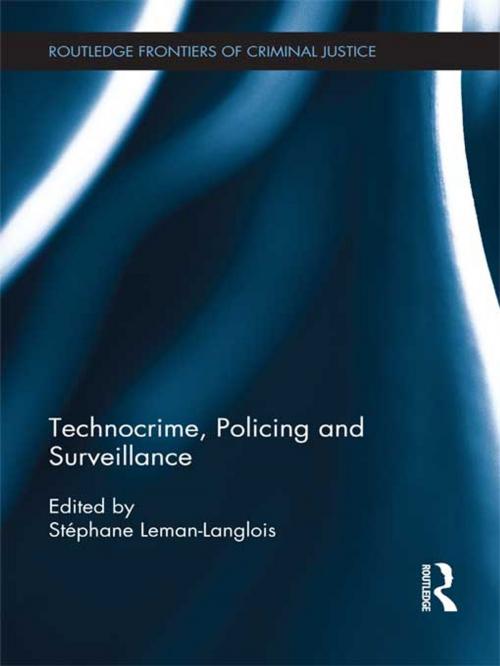Technocrime: Policing and Surveillance
Nonfiction, Social & Cultural Studies, Social Science, Crimes & Criminals, Criminology| Author: | ISBN: | 9781136253058 | |
| Publisher: | Taylor and Francis | Publication: | August 21, 2012 |
| Imprint: | Routledge | Language: | English |
| Author: | |
| ISBN: | 9781136253058 |
| Publisher: | Taylor and Francis |
| Publication: | August 21, 2012 |
| Imprint: | Routledge |
| Language: | English |
The growth of technology allows us to imagine entirely new ways of committing, combating and thinking about criminality, criminals, police, courts, victims and citizens. Technology offers not only new tools for committing and fighting crime, but new ways to look for, unveil, label crimes and new ways to know, watch, prosecute and punish criminals. This book attempts to disentangle the realities, the myths, the politics, the theories and the practices of our new, technology-assisted, era of crime and policing.
Technocrime, policing and surveillance explores new areas of technocrime and technopolicing, such as credit card fraud, the use of DNA and fingerprint databases, the work of media in creating new crimes and new criminals, as well as the "proper" way of doing policing, and the everyday work of police investigators and intelligence officers, as seen through their own eyes. These chapters offer new avenues for studying technology, crime and control, through innovative social science methodologies.
This book builds on the work of Leman-Langlois’ last book Technocrime, and brings together fresh perspectives from eminent scholars to consider how our relationship with technology and institutions of social control are being reframed, with particular emphasis on policing and surveillance. Technocrime, policing and surveillance will be of interest to those studying criminal justice, policing and the sociology of surveillance as well as practitioners involved with the legal aspects of law enforcement technologies, , domestic security government departments and consumer advocacy groups.
The growth of technology allows us to imagine entirely new ways of committing, combating and thinking about criminality, criminals, police, courts, victims and citizens. Technology offers not only new tools for committing and fighting crime, but new ways to look for, unveil, label crimes and new ways to know, watch, prosecute and punish criminals. This book attempts to disentangle the realities, the myths, the politics, the theories and the practices of our new, technology-assisted, era of crime and policing.
Technocrime, policing and surveillance explores new areas of technocrime and technopolicing, such as credit card fraud, the use of DNA and fingerprint databases, the work of media in creating new crimes and new criminals, as well as the "proper" way of doing policing, and the everyday work of police investigators and intelligence officers, as seen through their own eyes. These chapters offer new avenues for studying technology, crime and control, through innovative social science methodologies.
This book builds on the work of Leman-Langlois’ last book Technocrime, and brings together fresh perspectives from eminent scholars to consider how our relationship with technology and institutions of social control are being reframed, with particular emphasis on policing and surveillance. Technocrime, policing and surveillance will be of interest to those studying criminal justice, policing and the sociology of surveillance as well as practitioners involved with the legal aspects of law enforcement technologies, , domestic security government departments and consumer advocacy groups.















